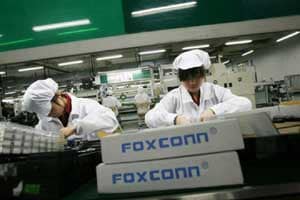That Terry Gou, chairman of the $132-billion, Taiwan-based Foxconn—the world’s largest electronic manufacturing service (EMS) company—has shown interest in setting up 10-12 manufacturing units in India by 2020 is an affirmation of the government’s Make-in-India policy. Foxconn, expected to spend “a few billion dollars” on this India foray, had earlier this year shut down its plant near Chennai after the Nokia handset plant there was sealed. This new investment could well provide the much-needed push for electronic manufacturing in the country. That is critical as electronic goods import is estimated to touch $400 billion by 2020 and consumer electronics could emerge as India’s single biggest import item, overtaking even crude oil. Reducing electronic goods import could also help the government manage the CAD. The Foxconn entry could also pave the way for other smaller EMS companies to enter India. If Foxconn does get the 12 plants up and ready by 2020, the case for setting up a semiconductor fabrication plant becomes all the more stronger. That should ease the pressure on electronic goods import.
While Foxconn’s entry helps India’s case as an investment destination, it is also because the company is looking at India as a means of de-risking its investments in China. The EMS major has over a dozen plants in nine Chinese cities that employ over 1 million people—as labour costs there have been rising, the company is looking to set shop in destinations that offer similar facilities at lower costs. It is time Indian states rolled out the red carpet to
Foxconn by reforming their labour laws. The jobs that it can provide should do wonders for an economy that is still trying to get back on track. But, one must realise that Foxconn has, over the years, been plagued with a series of problems at its China factories including riots, health issues and even employee suicides. While getting Foxconn to make the next version of the iPhone in an Indian factory is great, there is a need to build up support systems for employees here. That is crucial to ensure that the company’s problems in China are not replicated here, a critical element for the success of the venture. The action is not restricted to manufacturing. With Mexico’s Carlos Slim reportedly looking to offer services in India, telecom seems to be getting hot again.
For Updates Check Editorials and Columns; follow us on Facebook and Twitter
